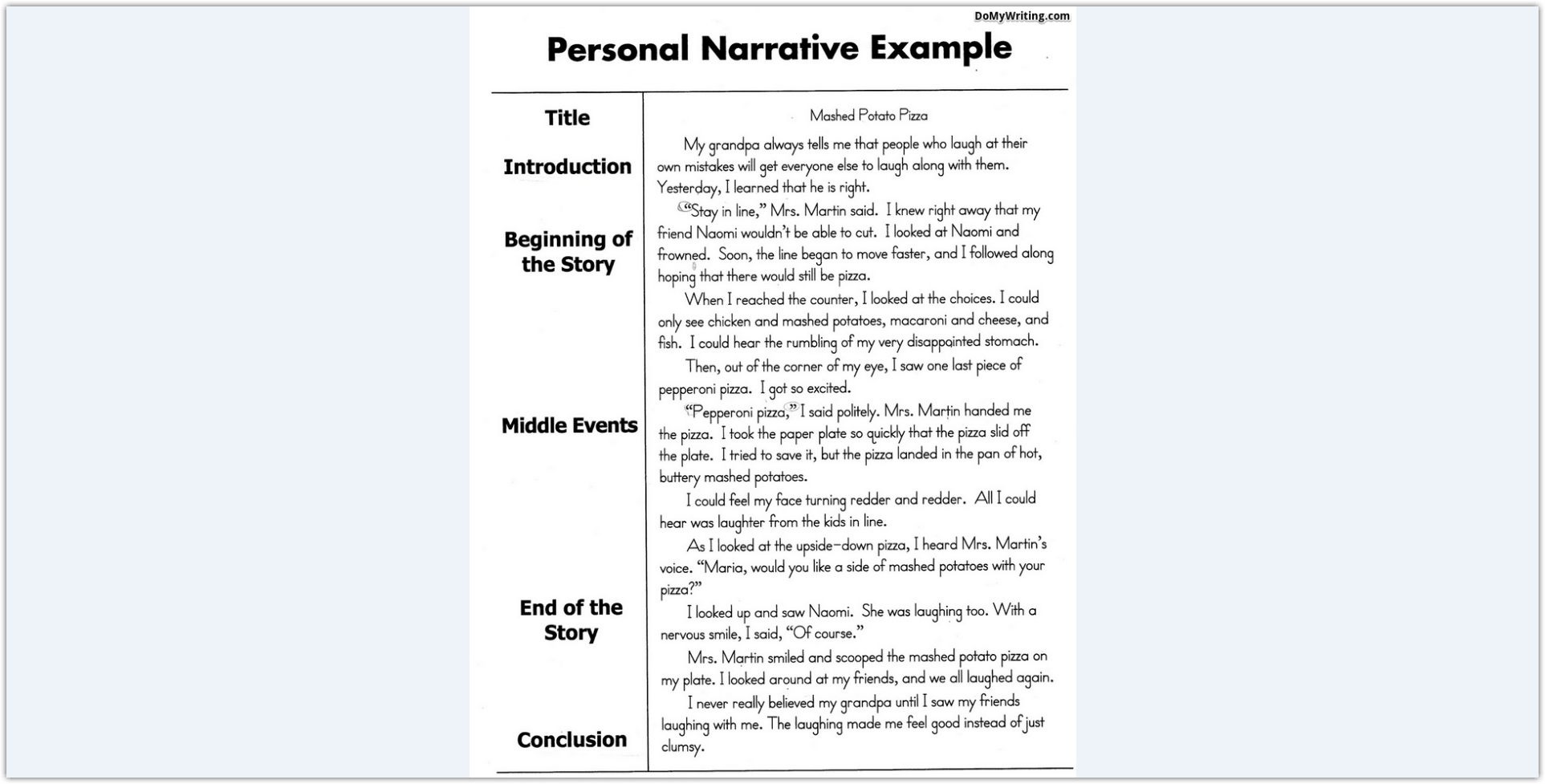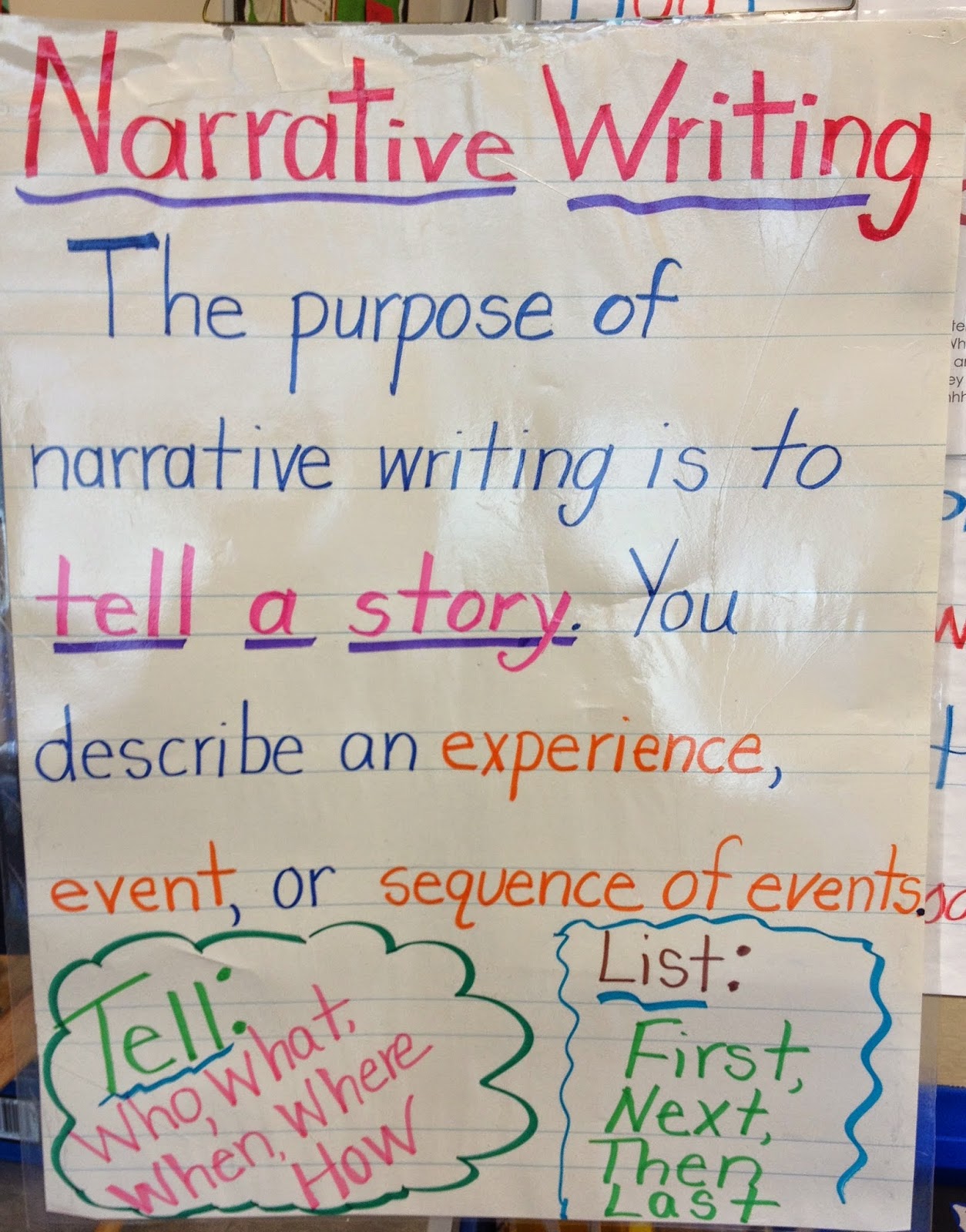
Quick Tips on Writing a Narrative Essay When writing a narrative essay, remember that you are sharing sensory and emotional details with the reader. Your words need to be vivid and colorful to help the reader feel the same feelings that you felt. Elements of the Jun 01, · Introduction. Take it as a warm-up for the audience and give them the main idea of what is that story about. sentences are the standard. Main Body. Collect every supportive argument for your story and logically place them. Remember: every new idea is Writing A Narrative Essay About Yourself - Narrative Essay Writing - Definition, Tips, and Examples If your academic instructor tasks you with Writing a narrative essay in high school or college, then this is Hdlp ideal opportunity for you to train your storytelling skills and showcase your knowledge and comprehension of a subject
How to Start a Narrative Essay (9 Steps) | Write Any Papers
Published on July 24, by Jack Caulfield. Revised on October 15, A narrative essay tells a story. In most cases, this is a story about a personal experience you had.
This type of essayalong with the descriptive essayallows you to get personal and creative, unlike most academic writing. Narrative essays test your ability to express your experiences in a creative and compelling way, and to follow an appropriate narrative structure. They are often assigned in high school or in composition classes at university.
You can also use these techniques when writing a personal statement for an application. Table of contents What is a narrative essay for? Choosing a topic Interactive example of a narrative essay Frequently asked questions about narrative essays. When assigned a narrative essay, you might find yourself wondering: Why does my teacher want to hear this story? Topics for narrative essays can range from the important to the trivial. Usually the point is not so much the story itself, but the way you tell it.
A narrative essay is a way of testing your ability to tell a story in a clear and interesting way. These skills are quite different from those needed for formal academic writing. You may be assigned quite a specific topic or choice of topics to work with. In these cases, you might have to think harder to decide what story you want to tell. The best kind of story for a narrative essay is one you can use to talk about a particular theme or lesson, or that takes a surprising turn somewhere along the way.
For example, a trip where everything went according to plan makes for a less interesting story than one where something unexpected happened that you then had to respond to, how to write a narrative composition.
Choose an experience that might surprise the reader or teach them something, how to write a narrative composition. When applying for college, you might be asked to write a narrative essay that expresses something about your personal qualities.
For how to write a narrative composition, this application prompt from Common App requires you to respond with a narrative essay.
In this context, choose a story that is not only interesting but also expresses the qualities the prompt is looking for—here, resilience and the ability to learn from failure—and frame the story in a way that emphasizes these qualities.
Scribbr editors not only correct grammar and how to write a narrative composition mistakes, but also strengthen your writing by making sure your paper is free of vague language, redundant words and awkward phrasing.
See editing example. Since elementary school, I have always favored subjects like science and math over the humanities, how to write a narrative composition. My instinct was always to think of these subjects as more solid and serious than classes like English. If there was no right answer, I thought, why bother? But recently I had an experience that taught me my academic interests are more flexible than I had thought: I took my first philosophy class. Before I entered the classroom, I was skeptical.
I waited outside with the other students and wondered what exactly philosophy would involve—I really had no idea. I imagined something pretty abstract: long, stilted conversations pondering the meaning of life. But what I got was something quite different. A young man in jeans, Mr. And rather than pulling us into pedantic arguments about obscure philosophical points, Rob engaged us on our level.
To talk free will, we looked at our own choices. To talk ethics, we looked at dilemmas we had faced ourselves. I learned that if I let go of my preconceptions, I can actually get a lot out of subjects I was previously dismissive of. The class taught me—in more ways than one—to look at things with an open mind.
What kind of story is relevant, interesting, how to write a narrative composition, and possible to tell within the word count? The best kind of story for a narrative essay is one you can use to reflect on a particular theme or lesson, or that takes a surprising turn somewhere along the way.
The point of a narrative essay is how you tell the story and the point you make with it, not the subject of the story itself. Narrative essays are usually assigned as writing exercises at high school or in university composition classes. They may also form part of a university application. When you are prompted to tell a story about your own life or experiences, a narrative essay is usually the right response.
The key difference is that a narrative essay is designed to tell a complete story, while a descriptive essay is meant to convey an intense description of a particular place, object, or how to write a narrative composition. Narrative and descriptive essays both allow you to write more personally and creatively than other kinds of essaysand similar writing skills can apply to both.
Have a language expert improve your writing. Check your paper for plagiarism in 10 minutes. Do the check. Generate your APA citations for free!
APA Citation Generator. Home Knowledge Base Essay How to write a narrative essay. How to write a narrative essay Published on July 24, by Jack Caulfield. What can proofreading do for your paper? How do I come up with a topic for my narrative essay?
When do I write a narrative essay? Is this article helpful? Jack Caulfield Jack is a Brit based in Amsterdam, with an MA in comparative literature. He writes and edits for Scribbr, and reads a lot of books in his spare time, how to write a narrative composition. Other students also liked.
How to write an expository essay An expository essay provides an explanation of a topic. How to write a descriptive essay A descriptive essay gives a vivid, detailed description of something—generally a place or object, but possibly something more abstract like an emotion….
How to write a personal statement for graduate school A successful personal statement for graduate school demonstrates your personality, talents, and goals. This article outlines some winning strategies. What is your plagiarism score? Scribbr Plagiarism Checker.
Writing a Narrative: Part 1 Structure \u0026 Elements - EasyTeaching
, time: 3:05How to Write a Narrative Essay: 15 Steps (with Pictures) - wikiHow

Jul 24, · Choosing a topic. Narrative essay assignments vary widely in the amount of direction you’re given about your topic. You may be assigned quite a specific topic or choice of topics to work with. Specific prompts. Write a story about your first day of school. Write a story Jun 01, · Introduction. Take it as a warm-up for the audience and give them the main idea of what is that story about. sentences are the standard. Main Body. Collect every supportive argument for your story and logically place them. Remember: every new idea is Writing A Narrative Essay About Yourself - Narrative Essay Writing - Definition, Tips, and Examples If your academic instructor tasks you with Writing a narrative essay in high school or college, then this is Hdlp ideal opportunity for you to train your storytelling skills and showcase your knowledge and comprehension of a subject
No comments:
Post a Comment